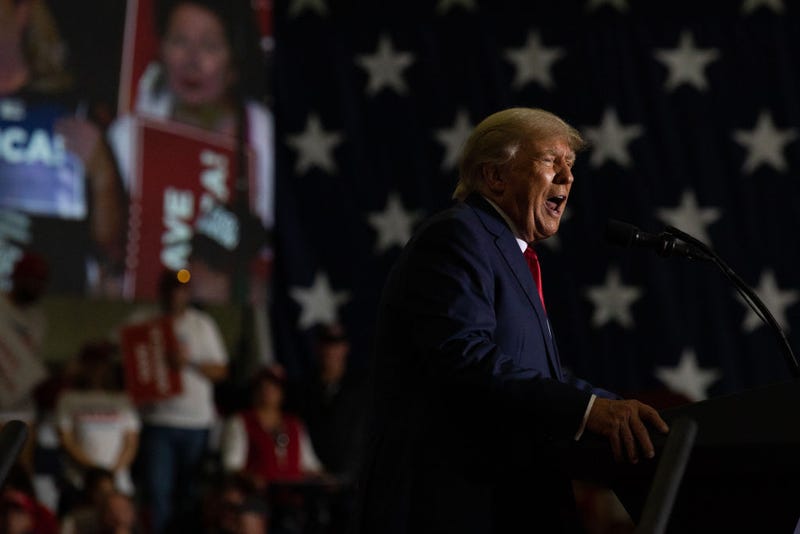
On Jan. 6, 2021, Trump supporters stormed the U.S. Capitol in an attempt to overturn the certification of the 2020 election. Now almost 21 months later, those supporters stand in court defending or admitting to their actions.
Among those facing charges in court is Stewart Rhodes, the leader of the Oath Keepers, an extremist group that supports former President Donald Trump.
Rhodes and four other Oath Keepers have all been accused of planning the Capitol attack for weeks prior to Jan. 6, 2021. The plans came to a head when the group stormed the Capitol in battle gear with hundreds of other rioters.
Rhodes' attorneys have started their defense of their client by taking an unusual strategy, claiming that Rhodes is not guilty of seditious conspiracy because his actions were in preparation for orders he anticipated from Trump, who was president at the time. The only issue is that the orders never came.
The trial kicked off with opening statements on Monday, with lead prosecutor Jeffrey Nestler telling jurors that Rhodes had a phone call with Florida Oath Keepers leader Jelly Meggs and "operations leader" Michael Greene on the steps of the U.S. Capitol on the day of the insurrection, according to The Washington Post.
Nestler said that Meggs and 14 other members of the group then "pushed their way past Capitol Police officers" so that they could gain entry to the building.
"The crowd cheered for them, yelling 'Oath Keepers, Oath Keepers' — they were the leaders," Nestler said.
The Oath Keepers' defense team has yet to make their opening statements.
During the trial, Rhodes intends to take the stand and pursue the odd angle of his belief that Trump would invoke the Insurrection Act to call up a militia in his support, according to HuffPost
Rhodes continues to make the claim despite Trump never invoking the act. While prosecutors have said his actions were an illegal conspiracy, his team says it was "actually lobbying and preparation for the President to utilize" the law.
"This is an incredibly complicated defense of theory, and I don't think that it's ever played out in this fashion in American jurisprudence," one of Rhodes' lawyers, James Lee Bright, told The Associated Press.


